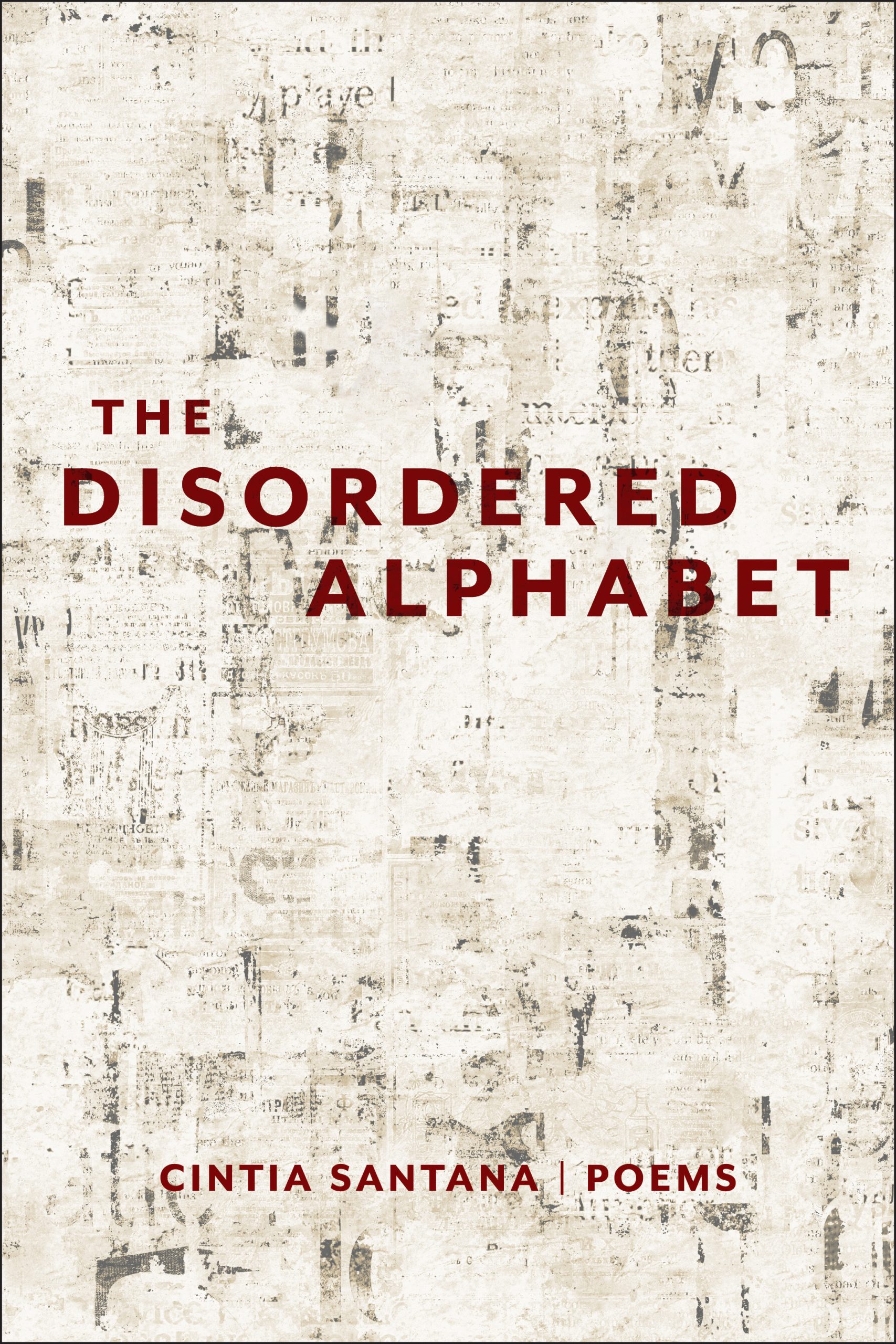
paper • 112 pages • 17.95
ISBN: 978-1-954245-62-4
eISBN: 978-1-954245-63-1
September 2023 • Poetry
Featured on Poets & Writers’ Ten Questions series
Finalist for the Golden Poppy Award in Poetry
Winner of the Silver Medal in Poetry from the North American Book Awards
Winner of the Bronze Medal in Poetry from the Ippy Awards
Cintia Santana’s virtuoso debut collection, The Disordered Alphabet, reckons with the emotional anarchy of our lives, baring the difficulty of wrestling experience into language. She surveys a cosmic crossroads, “the sluices of heaven wording as we [stand] in that great rushing wind within, yet without name, turning.” These poems pay homage to inherited forms while fashioning their own shapes — Santana writes in alliterative verse, in footnotes, in epistles to consonants and vowels, in ekphrasis, in thrall. Ranging from A to Z in style, subject, and mood, Santana’s poetic encyclopedia chronicles life’s ubiquitous elegies alongside the world’s innumerable wonders — true to jumbled experience, they arrive in no particular order, or in the particular order of all the time and all at once. If “let there be” enabled light, it released every other sublime liquid, for then also “there was lie. // Lapse. And lake. Luck and leap. Little by little. Letter by letter. And it was late. / And there was bloom.”
“Inherit”
In her, it.
It, in her.
Heredi-
tary she
heard it said.
Or somewhere
read. Her hair.
Her thinning
hair. Her hear-
ing, poor. Her
heir. She was.
In her was
her. In there.
The air a-
round her, her
air also.
Mother. Moth
to light. To
air. She, too.
She. Two.
“Wild!” she calls out in one poem, and in another (“I am your wild”), Cintia Santana sketches a self-portrait that serves for this high-spirited book, “I’m / your top, your spin . . . Tremble / and sway.” She’s a superb new poet, serving up gusts of generative energy and acute intelligence. There’s wordplay galore in The Disordered Alphabet, but so much more: temptation and swoon, confession, exposure, and the kind of daring formal agitation that accomplishes one rigorous shape after another to enable Santana’s discoveries and her complex harmonic voicings. The alphabet may be disordered, and the cosmos awhirl, but this book is a crystalline achievement of rapture, balance, and brilliance.
In this outstanding debut collection, where ‘a mouth breathed out a pale blue moth, and from the whorl of a whelk a newborn elk stepped impossibly out,’ Cintia Santana harnesses a language torqued by erasure and loss, imbued with the aftermath of Hiroshima, yet filled with present-tense wonder, to create a set of spell-binding poems.
Cintia Santana’s The Disordered Alphabet tussles with diction, wrangles with syntax, struggles with the sentence and the line in a kind of linguistic unmaking that somehow becomes a beautiful, unsettling song.